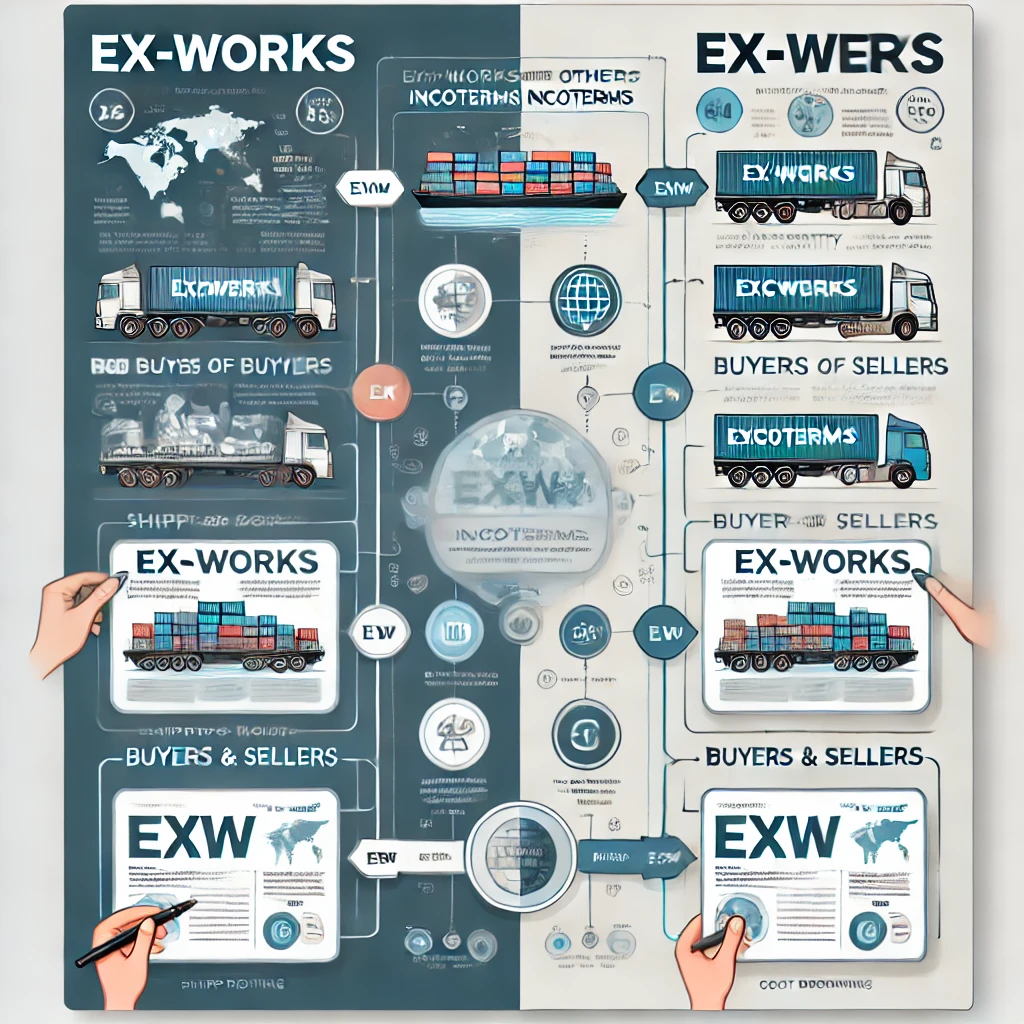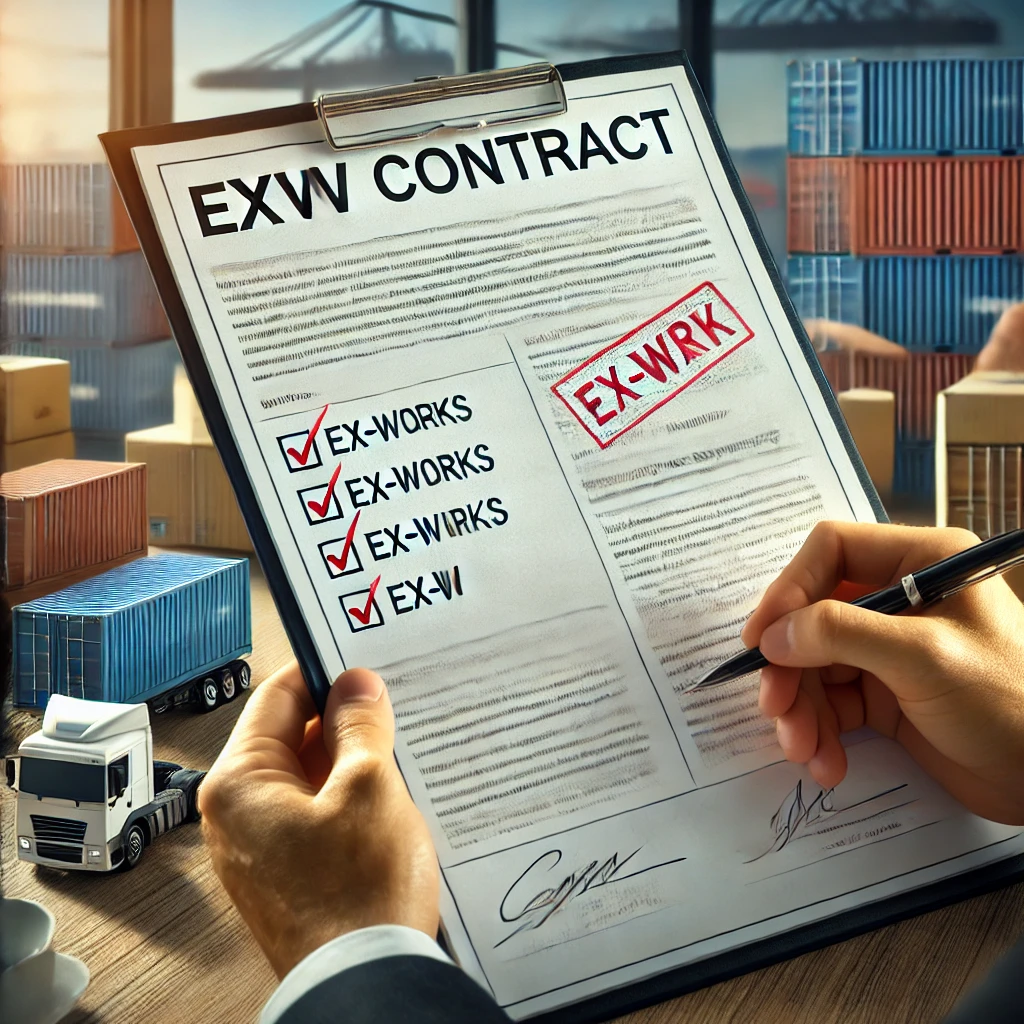The Basics of Ex-Works (EXW)

Key Features of Ex-Works
- Minimum Seller Obligation: Under EXW, the seller is only responsible for making the goods available at the agreed location. They are not required to load the goods onto the transport vehicle or clear them for export.
- Maximum Buyer Responsibility: The buyer assumes all costs and risks from the moment the goods are made available, including export and import duties, transportation, and insurance.
- Flexibility in Logistics: Since the buyer arranges for transportation and export processes, EXW is often used when the buyer has better logistical capabilities or wants full control over the shipment.
- Risk Transfer: The risk shifts from the seller to the buyer as soon as the goods are placed at the agreed-upon location.

Advantages of Ex-Works
For the Seller
- Lower Costs and Responsibilities: The seller does not have to worry about transportation, insurance, or customs clearance.
- Minimal Legal Obligations: The transaction is simpler for the seller, as they only need to ensure the goods are available at the designated location.
- No Export Compliance Hassles: The buyer handles all export documentation and compliance requirements.
For the Buyer
- Greater Control Over Shipping: The buyer can select the most cost-effective and reliable transportation options.
- Potential Cost Savings: If the buyer has established logistics partners, they might be able to negotiate better shipping rates than the seller.
- Avoiding Seller Markups: Sellers often add a margin when handling logistics, so EXW allows buyers to cut these additional costs.
Disadvantages of Ex-Works
For the Seller
- Limited Market Appeal: Some buyers prefer sellers to handle shipping, which may make EXW less attractive.
- Risk of Non-Collection: If the buyer fails to collect the goods on time, storage costs and risks may increase for the seller.
For the Buyer
- More Responsibilities: Managing transportation, customs, and insurance can be complex, especially for inexperienced buyers.
- Higher Risks: Any issues in export clearance or shipment handling fall entirely on the buyer.
- Complex Import Procedures: Some countries have strict regulations, making EXW impractical for international transactions.

Practical Uses of Ex-Works
- Manufacturing and Wholesale Transactions: Companies purchasing raw materials or bulk goods often prefer EXW to control their logistics.
- International Trade with Experienced Buyers: Firms with a strong logistics network use EXW to optimize costs.
- Situations Requiring Custom Shipping Solutions: Buyers with specialized shipping needs (e.g., oversized goods, refrigerated transport) often choose EXW to ensure proper handling.
Comparing Ex-Works with Other Incoterms
Incoterm | Seller Responsibilities | Buyer Responsibilities |
EXW (Ex-Works) | Makes goods available at origin | Handles all costs, risks, and export/import duties |
FCA (Free Carrier) | Delivers goods to the buyer’s carrier | Assumes costs and risks from that point onwards |
CIF (Cost, Insurance, and Freight) | Covers cost, insurance, and freight to destination port | Takes responsibility after the goods arrive at the port |
DDP (Delivered Duty Paid) | Covers all costs and duties to buyer’s location | Minimal responsibility for transportation |

When to Use Ex-Works
- When the buyer has strong logistics experience and wants full control over shipping.
- When the seller prefers to limit their responsibilities and reduce costs.
- When trading within a country where the buyer can easily manage transportation.
- When dealing with large or specialized shipments requiring customized shipping methods.
Conclusion
Ex-Works (EXW) is a straightforward Incoterm that offers significant benefits for sellers by minimizing their obligations. However, it places substantial responsibility on the buyer. It is best suited for transactions where the buyer has established logistics networks and can efficiently manage shipping and customs processes. Understanding the pros and cons of EXW can help businesses make informed decisions when structuring international trade agreements.
